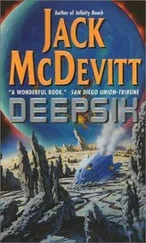It was time to break off. “We’ll deal with it tomorrow,” I told them. “We’ll discuss the issue in the morning, and when we know what we want to do, we’ll recall the Administrator and give him our answer.”
Technically, when the program had ended for the day, the Baranovians were expected to get away from it. They were supposed to go boating or play shuffleboard or just sit around in The Hawk’s Nest. But Sam explained to me that these people took the game very seriously. I’d already seen some evidence of that tendency when Murray’s team stayed up wrestling with the translations. On this third night, they could be found in groups all over Skyhawk, in conference rooms, along the benches, out on the terrace behind the dining room, debating the choice that had been laid before them.
Could they comply with the wish of a sentient being and, in effect, kill it? After all, Patti argued to a small group outside the boathouse, there’s nothing physically wrong with it. It’s only depressed. Killing it would be murder.
Warren Hatch and Eddie Edwards almost came to blows. Warren also thought it would be murder. But Eddie explained that he’d kept a cancer-ridden sister alive against her will. When he described the experience, his eyes grew wet. “Never again,” he said. “If this thing wants to be terminated, then I think we should comply.”
Warren shook his head. “Even if you have to violate your own moral code to do so?”
Maureen and I felt so good about what we were seeing that we left the grounds and went downtown to celebrate. There was a small college town nearby with a hotel featuring a sidewalk restaurant. The evening was pleasant, there were no insects, and the moonlight was serene. We started with BLT’s, and finished with gin tonics. “I think we can relax now,” she said. “The program’s going to be fine.”
We’d both been worried. Neither of us had participated in anything like this previously, and we hadn’t been sure what to expect. Sam had warned us how last year the Baranovians had solved the Moonbase murder mystery too quickly and simply taken the program away from the advisors. We thought we’d built elements into the Martian scenario to ensure that didn’t happen again. But you never knew.
“Thanks,” I said.
She squeezed my hand. “What interests me is that they’ve got so involved in the ethical dilemma that they haven’t yet seen the political implications.”
Each evening, I’d prepared the set of bulletins that would come in the following day from Worldwide News and Mars Central. I’d written a complete set before coming, but quickly discovered it was impossible to predict what the program would need. Although I could keep the flow of action within parameters, I could not determine in advance what might need to be emphasized here, or redefined there. For example, Maureen was right: the Baranovians needed to think about the world beyond their dome. And we were going to see to that first thing tomorrow.
And in case you’re wondering, no, I didn’t score. Not then and not later. I think she liked my mind.
Sam was listening to the earphones again. “Things are going downhill,” he said. He pushed a button. Explosions and gun shots rattled out of the speakers. And screams.
“—Show no sign of backing off, Howard.” Warren recognized the speaker as Christine Talley, a correspondent for Worldwide. “I can see three, possibly four, people down in the street. All civilians. The soldiers now are trying to go house to house. But there are snipers in the upper apartments. We’re getting reports that it’s like this all over Atlanta.” They could hear the sound of an approaching helicopter. “We’re still hearing rumors of summary executions. But the Army won’t comment.” She was shouting now to be heard over the roar of the aircraft. “Okay, you can see what’s happening, Howard. The gunships are positioning themselves directly over the houses where most of the shooting has been coming from. The troops are keeping their distance.” (Long pause. Then:) “We’ve got company.”
Another voice: “You’ll have to leave, ma’m. For your own safety.”
After that, everything dissolved into confusion: shouts, protests, the sound of a brief scuffle. Then Howard Kilminster from the Worldwide desk: “We’ve encountered technical difficulties for the moment with Christine Talley in Atlanta. We’ll get back to her as soon as we’re able. Meanwhile, the Pentagon has confirmed that two Regimental Combat Teams in the Chicago area have fired on other U.S. troops—.”
Somebody said, “turn it off.” Sam complied and the room got very quiet.
“Not sure what we’re going to have to go home to,” said Judy.
Warren wondered about his two kids living with his first wife in Philadelphia, and about his sister in Ardmore. Were they in danger? What was really happening?
Murray Fineberg had been standing staring out at the bleak red sky. “Something we need to think about,” he said. “We may be about to come into possession of some very high technology.”
Warren understood immediately where he was going.
“Do we really want to turn quantum power, whatever that is, over to a military dictatorship?”
“It’s not a military dictatorship,” said Jason hotly.
“I think,” said Warren, “it would be prudent to assume the worst.”
Al Finley, a newspaper editor from Toronto, suggested they divide into two teams to address each of the issues they now faced: Do they terminate the Administrator? Do they accept the advanced technology, knowing it will end up in the hands of the government?
But everyone had things to say on both topics, so they stayed together. And it became apparent that no one had settled anything the previous evening. On the issue of euthanasia, several had gone through personal experiences with dying relatives that they had no intention of repeating. Honor its wishes, they said.
Others maintained they were being asked to participate in the moral equivalent of murder. “Maybe worse,” said Patti Kubik. “If this thing really is a higher life form than we are, as it would like us to believe, then killing it is that much more reprehensible. I won’t have anything to do with it. And I’m not sure I’ll allow anyone else to shut it down.”
They ended in deadlock. The debate over accepting high-tech capabilities went easier. All had reservations, but almost everyone thought the risk was worth it. “We get starships,” said Judy Conroy. “How can we walk away from that?”
Only Al Finley held out. “You get starships. You also get 1984. It’s the prime directive in reverse. Technology without a corresponding social maturity is potentially deadly. I don’t think we should touch it. Tell the Administrator to get on the radio, if it can, and send the ships to Alpha Centauri. Maybe by the time we follow them we’ll be able to handle the stuff.”
But no one supported him.
They voted on the euthanasia issue, and decided by a majority of one to comply with the Administrator’s wishes. The losing side wanted to reopen the discussion, but Jake Cobblemere intervened. “It’s over,” he said. “We terminate.”
That produced some grumbling and three people walked out in protest, announcing their intention to return to Central rather than participate in murder. Warren was tempted to join them, but he’d listened to the arguments and was no longer sure in his own mind what was right.
Читать дальше










